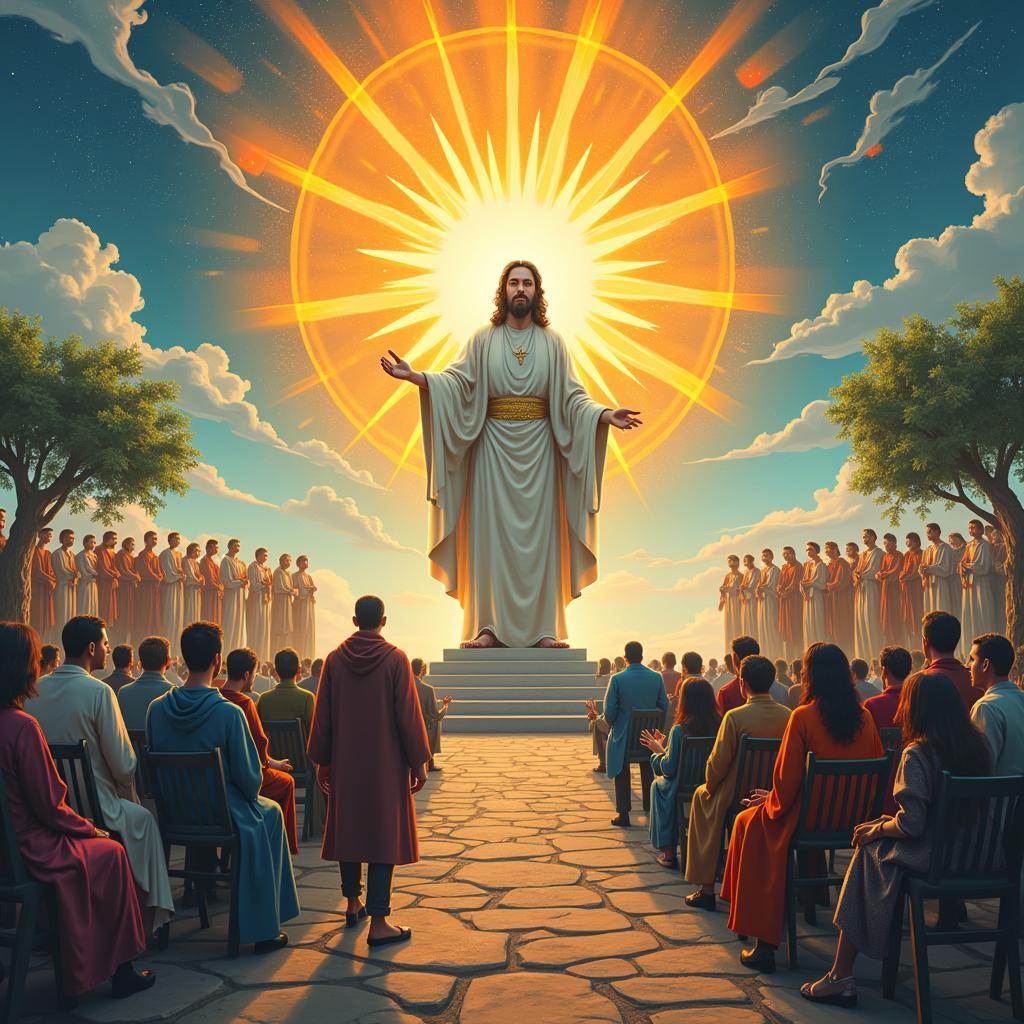God Worshipping Society is a fundamental aspect of human civilization, woven into the fabric of cultures across the globe. From ancient rituals to modern practices, the concept of worshipping a higher power has shaped societal norms, values, and even political structures. This article explores the diverse ways societies worship, the impact of these beliefs, and the potential for fostering peace and understanding through shared spirituality.
The Diverse Tapestry of God Worshipping Society
Societies have developed unique ways of expressing their reverence for the divine. These practices can range from elaborate ceremonies and rituals to personal prayers and meditations. Some societies focus on worshipping a single deity, while others embrace a pantheon of gods and goddesses. Understanding these different forms of worship is crucial to appreciating the rich tapestry of human spirituality. For instance, indigenous cultures often have deep connections with nature, viewing the earth and its elements as sacred. Their rituals may involve offerings to nature spirits or ceremonies to honor the changing seasons. In contrast, monotheistic religions like Christianity, Islam, and Judaism emphasize the worship of one God, with practices centered around prayer, scripture study, and communal gatherings.
The Role of Ritual and Tradition
Rituals and traditions play a vital role in god worshipping societies, providing structure and meaning to spiritual practices. They often involve symbolic actions and objects that represent core beliefs and values. For example, the lighting of candles in a church can symbolize hope and the presence of the divine. The sharing of bread and wine in Christian communion represents the body and blood of Christ. These rituals, passed down through generations, create a sense of continuity and shared identity within the community.
The Impact of Belief on Society
Beliefs about God and the divine significantly impact societal structures, influencing laws, moral codes, and social norms. In some societies, religious law is intertwined with secular law, shaping the legal system and influencing everyday life. Religious beliefs can also inspire acts of charity and compassion, motivating individuals to serve others and contribute to the well-being of their communities. However, it’s important to acknowledge that religious differences have also been a source of conflict throughout history. Understanding the complex relationship between belief and society is crucial for promoting peace and tolerance in a diverse world. What did Egyptian and Mesopotamian society have in common? Both were significantly influenced by religious beliefs.
Building Bridges Through Interfaith Dialogue
Interfaith dialogue plays a crucial role in fostering understanding and respect between different god worshipping societies. By engaging in open and respectful conversations, individuals from diverse religious backgrounds can learn from one another, dispel misconceptions, and build bridges of understanding. Such dialogue can contribute to peaceful coexistence and cooperation in addressing shared challenges.
God Worshipping Society in the Modern World
 Evolution of God Worship in Modern Society
Evolution of God Worship in Modern Society
In the modern world, god worshipping societies continue to evolve, adapting to changing social norms and technological advancements. The rise of the internet and social media has created new platforms for religious expression and communication. Online religious services, virtual communities, and interfaith dialogues are becoming increasingly common, connecting individuals across geographical boundaries.
Conclusion
God worshipping society is a complex and multifaceted phenomenon that has shaped human civilization for millennia. By understanding the diverse forms of worship, the impact of belief on society, and the potential for interfaith dialogue, we can foster a more peaceful and tolerant world. It is through mutual respect and understanding that we can build a future where different god worshipping societies can coexist harmoniously. Let us continue to explore the rich tapestry of human spirituality and work together to create a world where faith serves as a bridge rather than a barrier.
FAQ
- What is the significance of rituals in god worshipping societies?
- How do religious beliefs influence social structures?
- What is the role of interfaith dialogue in promoting peace?
- How is technology impacting god worshipping societies in the modern world?
- What are some examples of different forms of worship across cultures?
- How can we foster greater understanding and respect between different religious communities?
- What are the potential challenges and opportunities facing god worshipping societies in the 21st century?
Situations where these questions are commonly asked:
These questions are often asked in academic settings, interfaith dialogues, religious studies classes, and personal conversations about spirituality and belief systems.
Suggested further reading:
For more information on related topics, you can explore our articles on what did egyptian and mesopotamian society have in common.
Need Help?
When you need help, please contact Phone Number: 02043854663, Email: [email protected] Or visit the address: Khu 34, Bac Giang, 260000, Vietnam. We have a 24/7 customer service team.